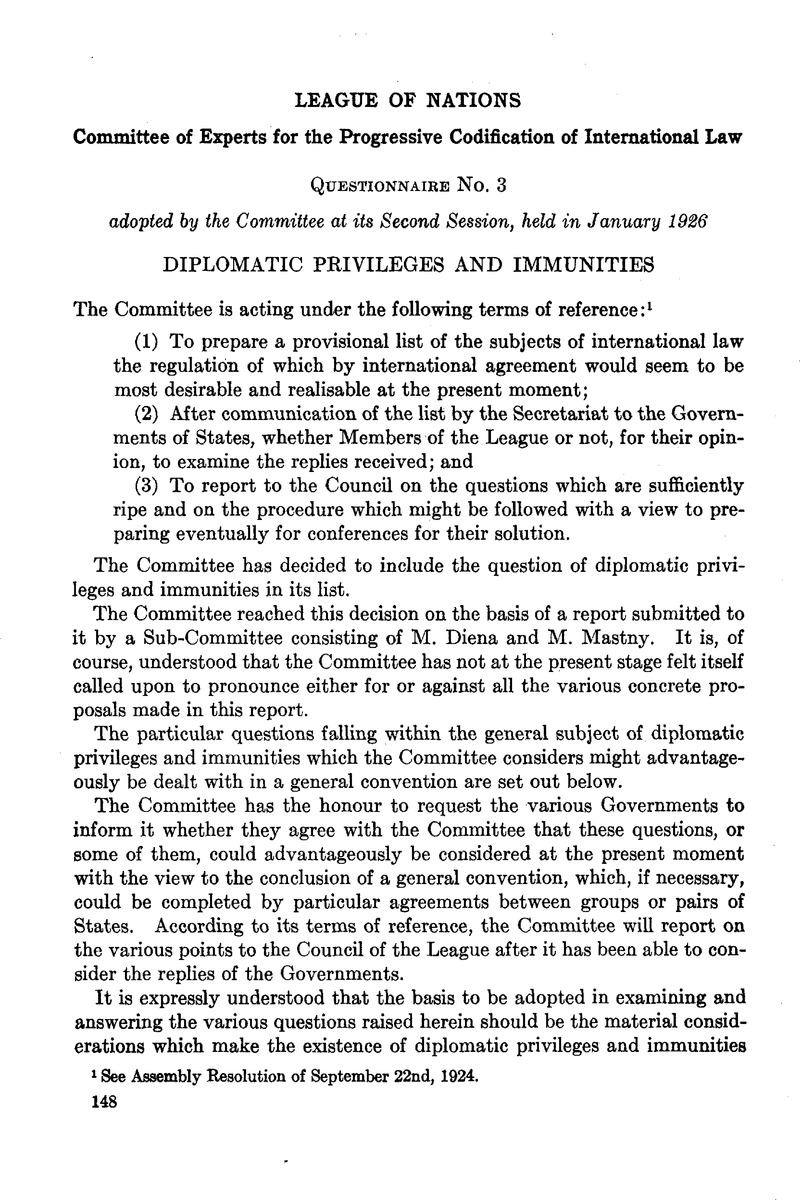No CrossRef data available.
Published online by Cambridge University Press: 04 May 2017

1 See Assembly Resolution of September 22nd, 1924.
1 Article 23 of the American draft, after excluding the so-called privilege of ex-territoriality, adds: “However, legal acts executed in the places mentioned by diplomatic agents in the exercise of their functions shall be subject, as to form, to the legislative provisions of the country which they represent.” It may be observed that, if this provision was intended to furnish the draft with a conventional law text, it can be approved, at least in principle, and with certain reservations. But if the provision was intended to proclaim a legal rule arising out of principles of law which are also binding upon the local authorities, quite apart from existing conventions, such a statement would, in my opinion, be without any legal justification at all, particularly as regards the validity of acts of marriage.
1 This article includes exemption from land taxes on the legation building among exemptions affecting the person of the diplomatic agent.
1 This article is as follows: “Persons enjoying immunity from jurisdiction may refuse to appear as witnesses before the national Courts on condition that they give their evidence, if required to do so through the diplomatic channel, to a magistrate of the country appointed for this purpose, and this evidence may be given even on the premises of the mission.”
1 Article 28 of the Washington draft is as follows: “The diplomatic agent may refuse to appear as a witness before the Courts of the country to which he is accredited. In case the evidence should be necessary, it must be requested in writing and through the diplomatic channel.”
1 This article states: “The inviolability of diplomatic agents, the exemption from taxes and jurisdiction, as well as the other immunities which they enjoy and to which the preceding articles relate, also extend to all those who form part of the official personnel of the diplomatic mission, and to the members of their families who live with them. …”
1 Article 2: “The privilege of inviolability extends (1)........; (2)........; (3) to all persons belonging to his unofficial staff, subject to the proviso that, if they are nationals of the country in which the mission resides, they shall only enjoy the privilege within the mission building.”
1 It would be a different thing if the diplomatic agent were summoned to appear before a local court in virtue of his civil responsibility.